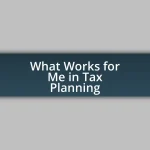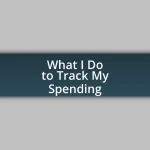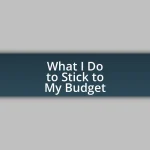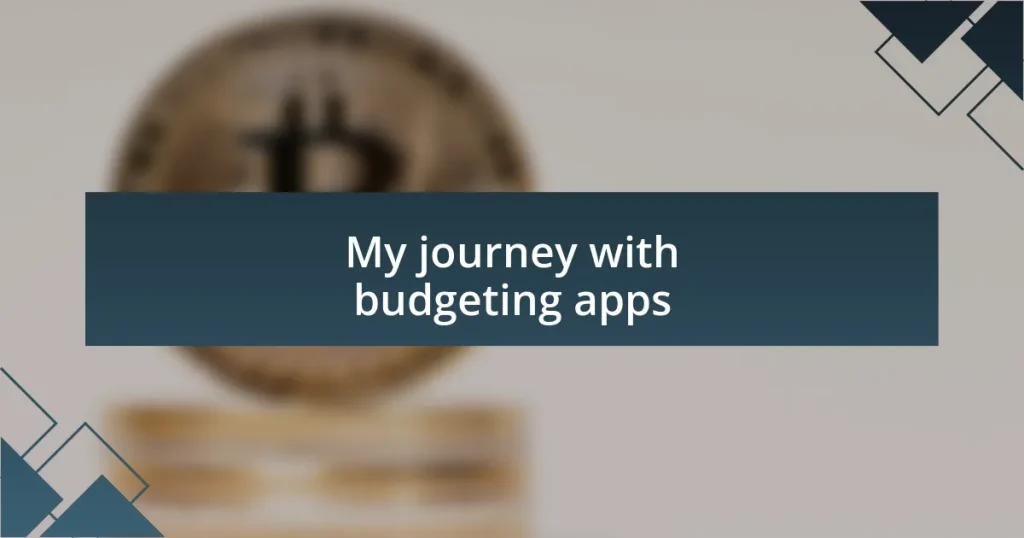Key takeaways:
- Budgeting apps enhance financial awareness, helping users track spending and set achievable savings goals.
- Choosing the right app involves assessing ease of use, features, cost, and customer support to align with personal financial habits.
- Common pitfalls include setting unrealistic goals, neglecting to update expenses, and over-relying on automatic features without understanding budgets.
- Regularly tracking progress and adjusting budgets is crucial for reflecting actual spending habits and eliminating unnecessary expenses.
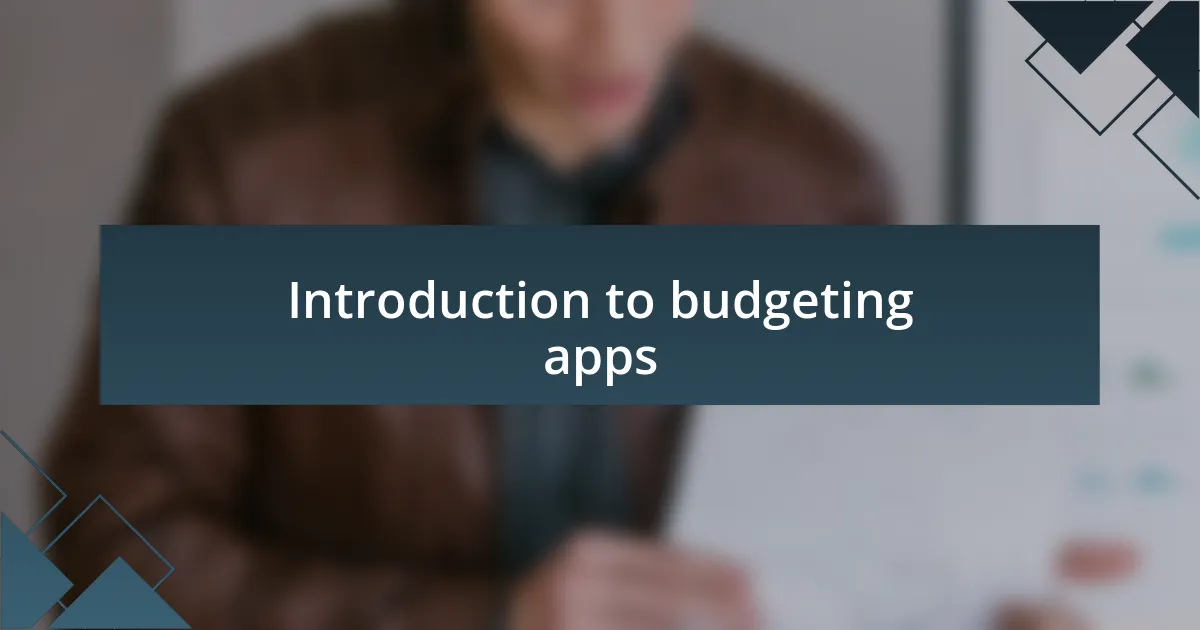
Introduction to budgeting apps
Budgeting apps have revolutionized the way we manage our finances. When I first stumbled upon these tools, I was overwhelmed by the sheer volume of budgeting methods available. It made me wonder, how could a simple app truly change my relationship with money?
As I started using budgeting apps, I quickly realized they were more than just digital spreadsheets. They became my personal financial allies, helping me track spending and set savings goals. Have you ever felt the weight lift off your shoulders when you see your expenses categorized and under control? For me, it was a game-changer, providing a sense of clarity that I never experienced before.
These apps often come with features that allow for detailed tracking, budgeting, and even investment planning. I remember a moment when I easily accessed real-time insights about my spending habits and thought, “Wow, I didn’t realize how much I was spending on takeout!” That realization turned into motivation, and I began to make more mindful choices. Isn’t it amazing how a little data can lead to big changes in our daily lives?
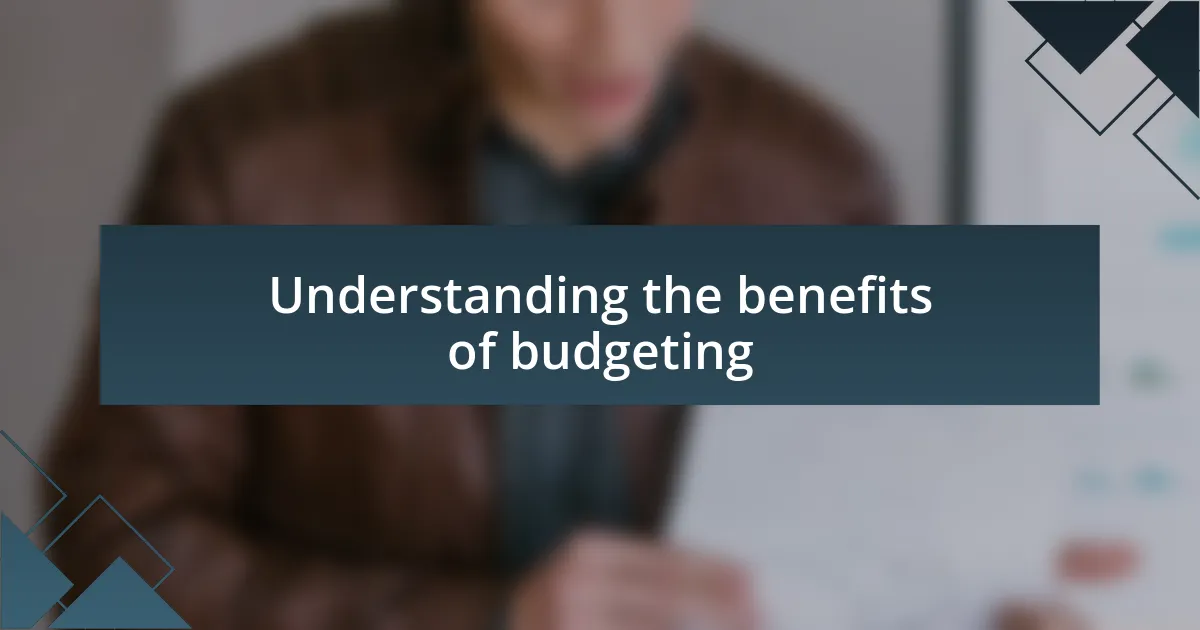
Understanding the benefits of budgeting
Understanding the benefits of budgeting
One of the most significant benefits of budgeting is the enhanced awareness it brings to our financial situation. When I first started tracking my expenses, I was startled to discover how small, daily purchases added up over time. This eye-opening realization led me to cut back on unnecessary spending, ultimately allowing me to save for that vacation I had been dreaming about. Isn’t it empowering to see your financial choices reflected in real numbers?
Budgeting also fosters a sense of control over one’s finances. After committing to a budget, I found myself feeling more in charge of my financial destiny rather than being at the mercy of my expenses. I vividly remember a month when I faced an unexpected expense, but because I had budgeted effectively, I was able to handle it without stress. Wouldn’t you agree that financial security can boost your overall peace of mind?
Additionally, budgeting helps in goal setting and achieving personal milestones. I use my budgeting app to track my progress toward significant purchases or savings goals. For instance, when I wanted to buy my first car, I set a specific savings target and timeline within the app. Watching my savings grow week after week was incredibly motivating, making me feel like I was really working towards something meaningful. Isn’t it rewarding to have tangible proof of your hard work?
| Benefit | Description |
|---|---|
| Enhanced Awareness | Understanding spending habits and where money goes. |
| Sense of Control | Feeling empowered over financial decisions. |
| Goal Achievement | Tracking progress towards savings or significant purchases. |
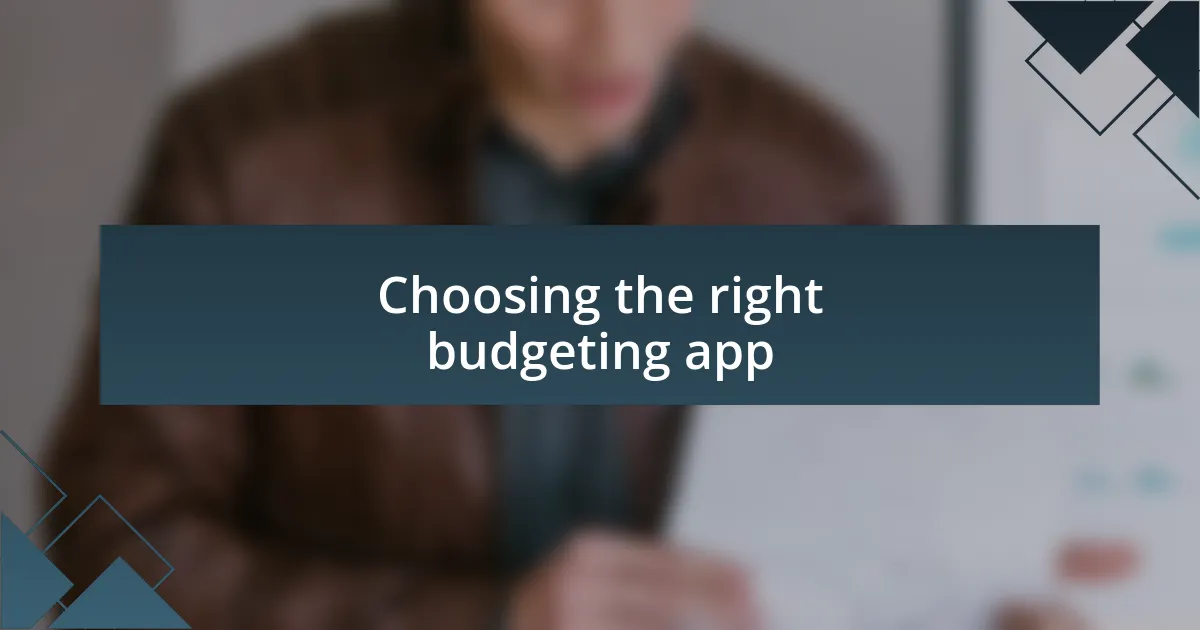
Choosing the right budgeting app
When it came to choosing the right budgeting app, I felt overwhelmed by the sheer number of options available. Each app seemed to boast unique features, but what really mattered was finding one that aligned with my financial habits and goals. After a bit of trial and error, I learned that a user-friendly interface and customizable options were essential for staying on track. That’s when I discovered the importance of identifying my priorities before making a decision.
Here are some key factors to consider when selecting a budgeting app:
- Ease of Use: Look for an app with a straightforward interface that makes entering data quick and simple.
- Features: Assess if you need features like expense tracking, goal setting, or integration with your bank accounts.
- Cost: Determine if you prefer a free app or if a paid subscription offers the features you value.
- Accessibility: Consider whether you want an app that works on mobile, desktop, or both.
- Customer Support: Check if the app provides good customer service in case you encounter issues or need guidance.
Choosing the right app can be a game-changer. For me, it wasn’t just about tracking money; it was about fostering healthy habits that extended beyond simple numbers.
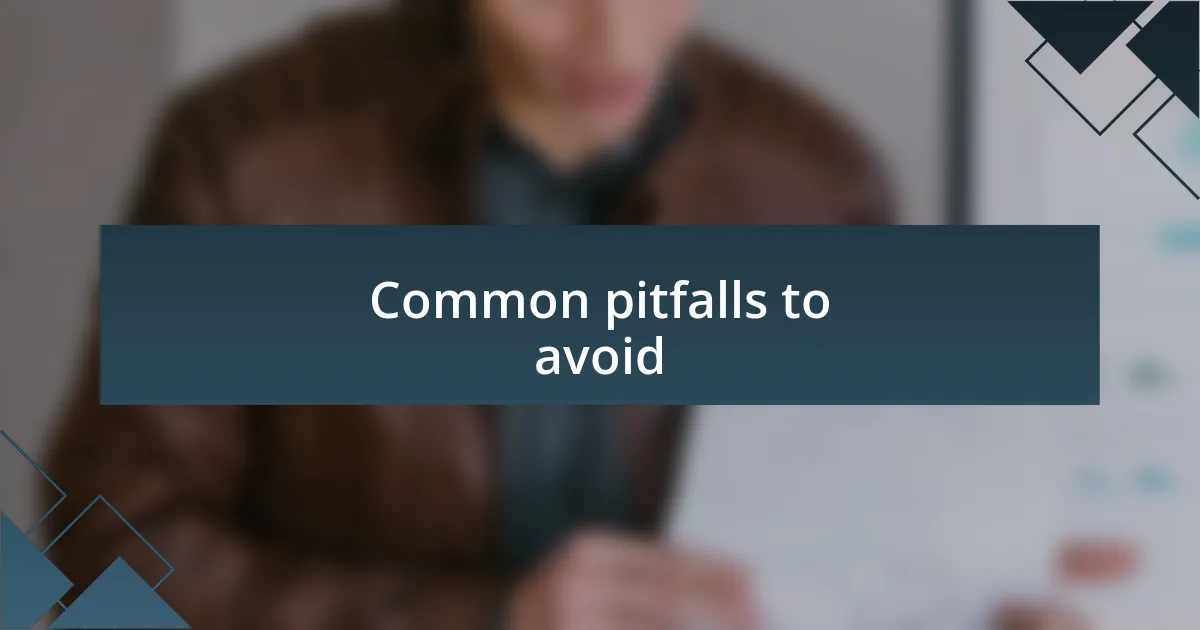
Common pitfalls to avoid
When I first started using budgeting apps, I had a tendency to become overly ambitious. I set unrealistic spending goals, thinking that sheer willpower would carry me through. Instead, I became frustrated and ended up giving up entirely. Realizing the importance of setting achievable goals was a pivotal moment for me. Have you ever found yourself setting expectations that just felt out of reach?
Another common pitfall I encountered was neglecting to update my expenses regularly. At first, I thought I could get away with sporadically entering my transactions, but it quickly led to confusion and a lack of clarity in my budget. I learned that consistency is key—making it a habit to input data daily turned my budgeting journey from a chore into a seamless part of my routine. How often do you find yourself forgetting to log expenses?
Lastly, I noticed that many people, including myself, were too eager to rely solely on the app’s automatic features without understanding the underlying budget. I realized that simply inputting data doesn’t create a financial plan; it’s essential to analyze my spending patterns and adjust as necessary. Engaging with my budget helped me make informed decisions and feel more in control of my finances. Have you taken the time to truly review your spending habits?
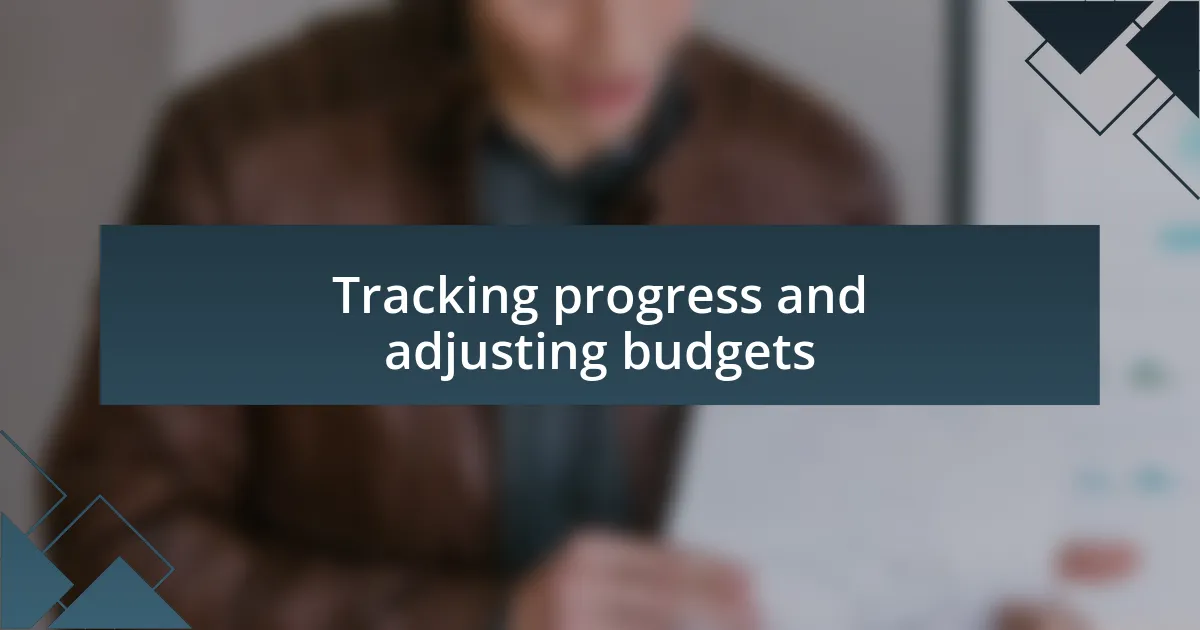
Tracking progress and adjusting budgets
Tracking my progress became a fascinating part of my budgeting journey. Each month, I would sit down with my app to review my expenses against my set goals. I recall the thrill of seeing a category where I had underspent; it felt like winning a small lottery. Have you felt that rush when you exceed your budget expectations?
As I became more attuned to my spending patterns, I found it essential to adjust my budget accordingly. For example, I noticed I consistently overspent on dining out, so I reevaluated that category and set a more realistic spending limit. This approach not only made my budget more reflective of my actual habits but also took the pressure off, allowing me to enjoy my experiences without guilt. Have you considered fine-tuning your budget based on your real-life spending?
Regular reviews of my budget also uncovered some unexpected insights. After tracking my progress for several months, I discovered I was wasting money on subscriptions I barely used. Adjusting my budget didn’t just mean allocating funds differently; it meant letting go of what no longer served me. Have you taken a moment to assess your recurring expenses and what they truly bring to your life?



